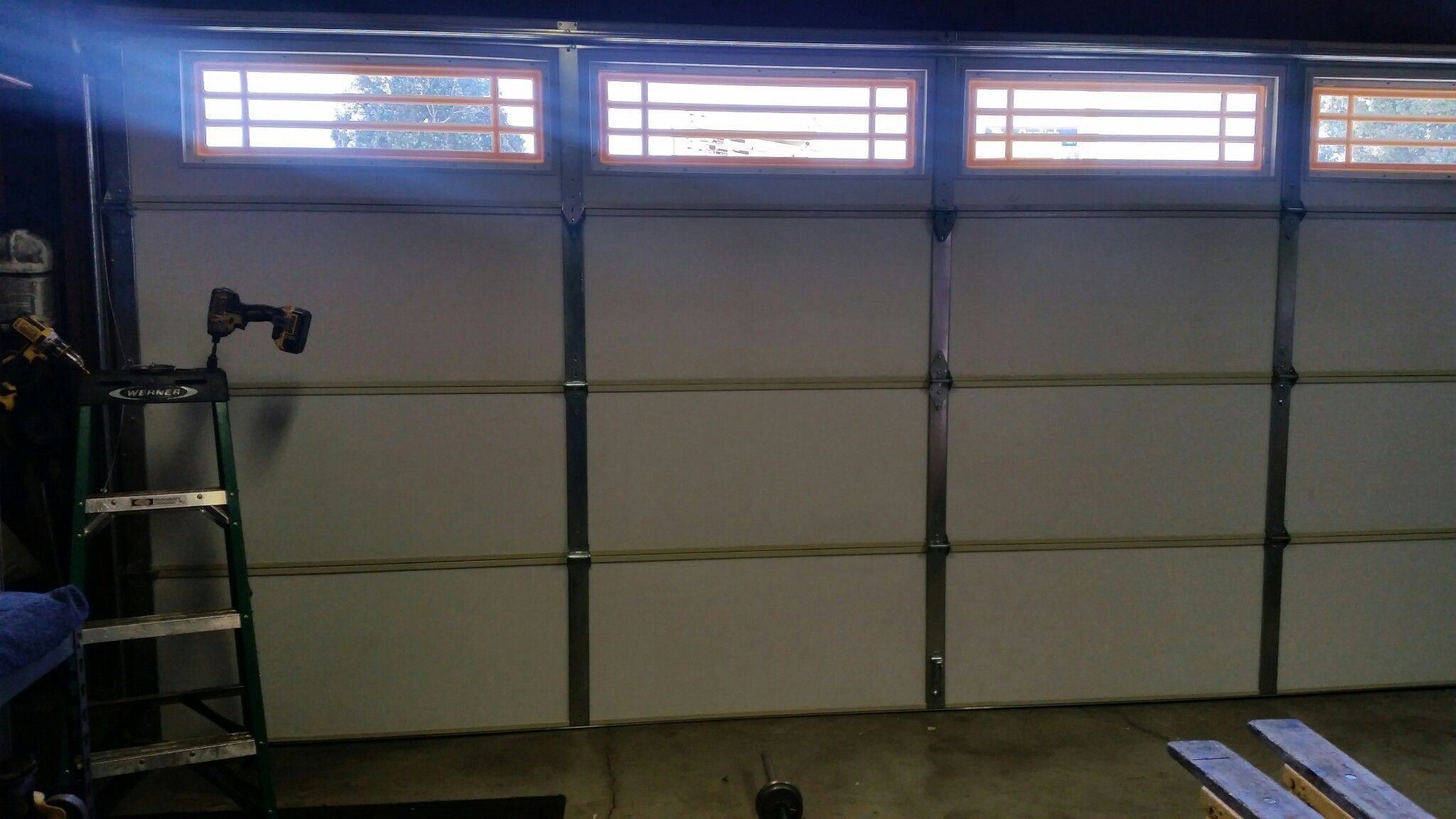

Articles
How To Tell If Garage Door Is Insulated
Modified: October 20, 2024
Discover if your garage door is insulated with these informative articles. Learn the benefits of insulation and how to determine if your door is properly insulated.
(Many of the links in this article redirect to a specific reviewed product. Your purchase of these products through affiliate links helps to generate commission for Storables.com, at no extra cost. Learn more)
Introduction
Welcome to our guide on how to tell if your garage door is insulated. When it comes to garage doors, insulation is an important factor to consider. Insulating your garage door can provide several benefits, such as energy efficiency, noise reduction, and temperature regulation. In this article, we will explore why insulation is important for garage doors, the types of garage door insulation available, and how to determine if your garage door is insulated.
Garages are often overlooked when it comes to insulation, but they can be a significant source of energy loss in your home. Without proper insulation, heat and cold air can easily seep into your garage, causing your heating or cooling systems to work harder. This can result in higher energy bills and a less comfortable environment inside your home.
There are various types of garage door insulation available, including foam board insulation, reflective insulation, and insulated garage door panels. Each type has its own benefits and installation methods, and the choice will depend on your specific needs and budget.
Now, let’s dive into the methods you can use to determine if your garage door is insulated. You can start with a visual inspection, followed by a physical check, and if necessary, seek professional assessment.
Key Takeaways:
- Insulating your garage door offers benefits such as energy efficiency, noise reduction, and temperature regulation. Consider the various insulation types and methods to determine if your garage door is already insulated.
- Investing in an insulated garage door can enhance your home’s value, contribute to sustainability, and create a more comfortable and functional garage space. Explore the advantages of insulation and make informed decisions for your specific needs.
Read more: How To Install Insulation On Garage Door
Why is Insulation Important for Garage Doors?
Insulating your garage door is crucial for several reasons. Firstly, it helps to improve energy efficiency in your home. When your garage door is properly insulated, it acts as a barrier against outdoor temperatures, preventing heat or cold from entering or escaping. This reduces the workload on your heating and cooling systems, ultimately saving energy and reducing your utility bills.
Another important reason to insulate your garage door is for noise reduction. Garages are often used as workspaces, gyms, or even entertainment areas. By insulating your garage door, you can minimize the transfer of sound from outside, creating a quieter and more peaceful environment inside. This can be particularly beneficial if you have living spaces adjacent to or above the garage.
Furthermore, insulated garage doors offer better temperature regulation. If you live in an area with extreme weather conditions, insulated doors can help maintain a more consistent and comfortable temperature inside your garage. Whether it’s keeping the heat out in summer or preventing cold drafts in winter, insulation plays a vital role in keeping your garage more pleasant and usable throughout the year.
Insulated garage doors also provide added protection for your belongings. Many homeowners use their garages not only for parking their vehicles but also for storing valuable items. Insulation can help prevent extreme temperatures and moisture from damaging your belongings, whether it’s electronics, tools, or sensitive materials.
Lastly, investing in an insulated garage door can increase the overall value of your home. Many potential buyers consider energy efficiency and comfort as important factors when looking for a new property. By having an insulated garage door, you can make your home more desirable and appealing to potential buyers in the future.
Considering all these benefits, it is clear that insulation is a crucial aspect of a well-functioning and efficient garage door. In the next section, we will explore the different types of insulation available for garage doors.
Types of Garage Door Insulation
When it comes to insulating your garage door, there are several options available. Each type of insulation has its own advantages and installation methods. Let’s take a closer look at the most common types of garage door insulation:
- Foam Board Insulation: This type of insulation is made from rigid foam panels that are placed inside the garage door panels. Foam board insulation offers excellent thermal resistance and is relatively easy to install. It comes in various thicknesses to suit different insulation needs.
- Reflective Insulation: Reflective insulation is typically made from a layer of foil-faced polyethylene bubble wrap. It works by reflecting radiant heat away from the garage door. Reflective insulation is lightweight and easy to install. However, it is important to note that it is primarily effective against radiant heat, so it may not provide as much insulation for colder climates.
- Insulated Garage Door Panels: If you’re looking for a more convenient option, consider purchasing a garage door with pre-insulated panels. These panels come with built-in insulation, such as polystyrene or polyurethane foam. Insulated garage door panels offer excellent insulation properties and can provide significant energy savings. They are typically more expensive than other insulation options but offer a seamless and durable solution.
- DIY Insulation Kits: DIY garage door insulation kits are also available for those who prefer a hands-on approach. These kits typically include insulation materials, such as fiberglass batts or polystyrene panels, along with adhesive or fasteners for installation. DIY kits can be cost-effective, but the installation process may require some time and effort to achieve proper insulation.
When choosing the right insulation type for your garage door, consider factors such as climate, budget, and the level of insulation required. It is recommended to consult with a professional if you’re unsure about which insulation option will work best for your specific garage door.
Now that you are familiar with the different types of insulation available, let’s move on to the next section, where we will discuss how to check if your garage door is already insulated or not.
How to Check if Your Garage Door is Insulated
If you’re unsure whether your garage door is insulated or not, there are several methods you can use to find out. By conducting a visual inspection and performing a physical check, you can determine if your garage door has insulation. Here’s how you can do it:
Visual Inspection:
Start by visually examining your garage door. Insulated garage doors typically have multiple layers or panels, as opposed to single-layer doors which are usually not insulated. Look for any signs of insulation, such as foam board panels or polystyrene/polyurethane-filled panels. Insulated doors often have a more substantial and durable appearance compared to non-insulated doors.
Another visual clue of insulation is the thickness of the door. Insulated doors are generally thicker to accommodate the insulation material. Use a tape measure to measure the thickness of the door. If it’s thicker than a non-insulated door, there’s a good chance it is insulated.
Read more: What Is The Best Insulation For Garage Doors
Physical Check:
Conducting a physical check can provide further evidence of insulation. Tap on the garage door panels and listen for a hollow sound. If the door produces a solid, dampened sound, it is likely to be insulated. Conversely, if the sound is hollow and reverberating, it indicates a lack of insulation.
You can also try to feel the temperature of the garage door. Stand close to the door and place your hand on its surface. If the door feels noticeably warmer or colder than the surrounding garage, it may indicate insulation is present.
Professional Assessment:
If you’re still unsure after conducting a visual inspection and physical check, it may be beneficial to seek professional assessment. Contact a local garage door professional who can examine your door and determine if it is insulated. They have the expertise to identify insulation materials and provide expert advice on whether insulation is present.
By using these methods, you will be able to determine whether your garage door is insulated or not. If your garage door is not insulated, you may consider adding insulation to reap the benefits that come with it. In the next section, we will discuss the various advantages of having an insulated garage door.
Visual Inspection
One of the first methods you can use to determine if your garage door is insulated is through a visual inspection. By closely examining your garage door, you can look for signs of insulation materials or the presence of multiple layers. Here are some steps to follow during a visual inspection:
1. Examine the Panels:
Start by carefully examining the panels of your garage door. Insulated garage doors typically have multiple layers or sections, whereas non-insulated doors usually consist of a single layer. Look for signs of foam board insulation or polystyrene/polyurethane-filled panels, as these are common insulation materials used in garage doors. Insulated panels are often thicker and more substantial compared to non-insulated ones.
Read more: How To Insulate A Roll Up Garage Door
2. Check for Insulation Material:
Inspect the edges and corners of the garage door for any visible signs of insulation material. Look for foam board panels or strips of insulation material that may be attached to the door. These materials are designed to provide thermal resistance and can indicate that your garage door is insulated.
3. Assess the Appearance of the Door:
Take note of the overall appearance of your garage door. Insulated doors often have a more substantial and durable look compared to non-insulated doors. They may appear sturdier and have a thicker profile due to the insulation material inside. Additionally, insulated doors may have a smoother surface, as the insulation can help to fill any gaps or imperfections.
4. Measure the Door Thickness:
Using a tape measure, measure the thickness of your garage door. Insulated doors are typically thicker than non-insulated doors to accommodate the insulation material. If your door is noticeably thicker than a non-insulated door, it suggests the presence of insulation.
By visually inspecting your garage door, you can gather valuable clues to determine if it is insulated or not. Keep in mind that this method provides a general indication, but it may not always provide conclusive evidence of insulation. If you’re still uncertain, consider performing a physical check or seeking professional assessment. In the next section, we will explore the process of conducting a physical check to confirm if your garage door is insulated.
Physical Check
Performing a physical check is another effective method to determine if your garage door is insulated. By physically examining the door and utilizing your senses, you can gather more concrete evidence of insulation. Here’s how you can conduct a physical check:
Read more: How To Tell If Insulation Is Bad
1. Tap on the Door:
Start by tapping on the surface of your garage door panels. Use your knuckles or a small hammer to lightly tap on different areas of the door, such as the center and the sides. Pay attention to the sound it produces. If the door produces a solid, dampened sound, it likely indicates that it is insulated. Insulated doors tend to provide a more solid and sturdy sound compared to non-insulated doors, which may have a hollow or reverberating sound.
2. Feel the Door Surface:
Another way to physically check for insulation is by feeling the surface of the garage door. Stand close to the door and place your hand on its surface. Pay attention to the temperature sensation. Insulated doors tend to have better thermal resistance, which means they can help to prevent the transfer of heat or cold. If the door feels noticeably warmer or colder than the surrounding garage, it suggests that insulation is present.
3. Look for Insulation Layers:
If you have access to the inside of your garage, take a look at the backside of your garage door. Insulated doors often have visible insulation layers or panels on the interior side. Look for signs of foam board insulation, reflective insulation, or any other insulation material that may be attached to the door. These layers are designed to provide better insulation and can indicate that your garage door is insulated.
By physically checking your garage door, you can gather more tangible evidence of insulation. The combination of tapping on the door, feeling its surface temperature, and examining for insulation layers can provide a clearer indication of whether or not your garage door is insulated. However, if you’re still unsure, it’s always beneficial to seek professional assessment. In the next section, we will discuss the advantages of having an insulated garage door.
Professional Assessment
If you’re still uncertain about whether your garage door is insulated or not, seeking a professional assessment is a recommended course of action. Garage door professionals have the expertise and knowledge to accurately determine if your garage door has insulation. Here’s how they can help:
Read more: How To Tell If A Screwdriver Is Insulated
1. Expert Evaluation:
A garage door professional will conduct a thorough evaluation of your garage door. They will examine the construction, materials, and design of the door to determine if it is insulated. They are trained to identify insulation materials and can provide a reliable assessment based on their experience and expertise.
2. Knowledge of Insulation Models:
Garage door professionals are familiar with different garage door models and the specific insulation options available for each. They can identify the exact type of insulation used in your door and provide information about its insulation R-value, which measures the effectiveness of insulation. This can help you understand the level of insulation your door provides and its potential benefits.
3. Recommendations for Upgrades:
If your garage door is not already insulated, a professional can recommend insulation options suitable for your specific door. They can suggest the most appropriate insulation materials or provide information about upgrading to an insulated garage door if desired. They will consider factors such as your climate, budget, and insulation needs to provide tailored recommendations for your garage door.
4. Installation Services:
If you decide to add insulation to your garage door or upgrade to an insulated door, a professional can offer installation services. They have the necessary tools and expertise to properly install insulation materials or replace your existing door with an insulated one. This ensures a high-quality installation that maximizes the benefits of insulation.
By consulting a garage door professional, you can receive accurate information, expert advice, and appropriate recommendations regarding the insulation of your garage door. They can help you make informed decisions about insulation upgrades and ensure that your garage door is properly insulated to enjoy the benefits that come with it.
Now that we have explored the different methods to determine if your garage door is insulated and the benefits of insulation, let’s move on to the next section to examine the advantages of having an insulated garage door.
Read more: How Much Does An Insulated Garage Door Cost
Benefits of Insulated Garage Doors
Insulated garage doors offer a range of benefits that can greatly improve the functionality and comfort of your garage space. Let’s explore some of the key advantages of having an insulated garage door:
1. Energy Efficiency:
One of the primary benefits of insulated garage doors is improved energy efficiency. Insulation acts as a barrier against outdoor temperatures, preventing heat or cold from seeping into your garage. This helps to maintain more stable temperatures inside your garage, reducing the workload on your heating and cooling systems. As a result, you can enjoy significant energy savings and lower utility bills.
2. Noise Reduction:
Insulated garage doors can significantly reduce the noise that enters or leaves your garage. The insulation material helps to dampen sound vibrations, creating a quieter environment inside. This can be particularly beneficial if you use your garage for various activities, such as woodworking, home gym workouts, or as a play area. Insulated doors can help keep the noise contained and minimize disturbances to the rest of your home.
3. Temperature Regulation:
Insulated garage doors play a crucial role in temperature regulation. If you reside in an area with extreme weather conditions, insulation helps to maintain a more consistent and comfortable temperature inside your garage. During hot summers, insulation can keep the heat out, preventing your garage from becoming sweltering. In colder months, insulation helps to keep the cold air at bay, reducing drafts and chilly temperatures. This allows you to utilize your garage for various purposes, even in extreme weather conditions.
4. Enhanced Durability:
Insulated garage doors often have additional layers or thicker panels, making them more durable and resistant to impact. The insulation material helps to reinforce the structure of the door and provide added stability. This can protect your garage door from damage caused by harsh weather, accidental bumps, or general wear and tear, increasing its lifespan and reducing the need for frequent repairs or replacements.
5. Improved Home Value:
Investing in an insulated garage door can enhance the overall value of your home. Many homebuyers consider energy efficiency and comfort as important factors when assessing a property. Having an insulated garage door demonstrates that your home is energy-efficient and well-maintained, making it more appealing to potential buyers in the future.
By enjoying these benefits of insulated garage doors, you can create a more comfortable, efficient, and functional space within your garage. Now, let’s conclude our exploration of insulated garage doors.
Energy Efficiency
One of the significant advantages of having an insulated garage door is improved energy efficiency. Insulation plays a crucial role in preventing heat transfer, both in and out of your garage. Here’s a closer look at how insulated garage doors contribute to energy efficiency:
1. Reduction in Thermal Loss:
An insulated garage door acts as a barrier against outdoor temperatures, helping to minimize heat loss in the winter and heat gain during the summer. It prevents the transfer of hot or cold air from entering or escaping through your garage door, reducing the overall workload on your heating or cooling systems. This translates into energy savings and lower utility bills as your HVAC systems don’t need to work as hard to maintain the desired temperature in your home.
Read more: How To Insulate Garage Floor
2. HVAC System Efficiency:
With an insulated garage door, your HVAC (Heating, Ventilation, and Air Conditioning) systems can operate more efficiently. Since your garage is not an isolated space and shares walls with your home, the temperature inside the garage can impact the temperature of adjoining rooms. Insulated garage doors help to regulate the temperature in the garage, preventing extreme heat or cold from seeping into the adjacent living areas. This allows your HVAC system to more effectively maintain a comfortable indoor climate throughout your home without any additional strain.
3. Lower Energy Consumption:
By reducing thermal loss and improving temperature regulation, insulated garage doors contribute to lower energy consumption. When your garage door is properly insulated, less energy is needed to maintain a consistent temperature inside your garage. This results in reduced energy usage, which not only benefits the environment but also lowers your carbon footprint. Additionally, lower energy consumption means a positive impact on your overall energy costs, providing long-term savings.
4. Sustainability:
Insulated garage doors align with sustainable living practices. By investing in an energy-efficient solution, you contribute to a more sustainable home environment. Insulation reduces the demand for energy resources and supports conservation efforts. It also helps to create a more comfortable living space, minimizing the need to rely heavily on artificial heating or cooling methods.
With improved energy efficiency, insulated garage doors not only benefit your personal comfort and wallet but also help promote a greener future. Whether it’s during harsh winters or scorching summers, an insulated garage door provides a valuable layer of insulation, allowing you to maintain a more comfortable, energy-efficient, and eco-friendly home.
Now that we have explored the energy efficiency aspect of insulated garage doors, let’s conclude our article.
Noise Reduction
Another significant benefit of insulated garage doors is their ability to reduce noise. Garages are often used for various purposes, from parking vehicles to working on projects or using them as a recreational space. Here’s an overview of how insulated garage doors contribute to noise reduction:
Read more: How To Insulate A Garage Ceiling
1. Sound Absorption:
The insulation material used in garage doors helps to absorb and dampen sound vibrations. This means that noises originating from within the garage, such as power tools or loud music, are less likely to reverberate and transmit through the door. The insulation provides a buffer, reducing the intensity of sounds and preventing them from echoing or traveling to the outside environment.
2. External Noise Reduction:
Insulated garage doors not only prevent sound from escaping but also help to reduce the amount of noise that enters the garage from the outside. This is particularly beneficial if your garage is near a busy road, noisy neighbors, or other sources of external disturbance. The insulation material acts as a barrier, preventing unwanted noises from penetrating the garage, creating a quieter and more peaceful environment inside.
3. Improved Acoustics:
Insulated garage doors contribute to better acoustics within the garage space. The sound-absorbing properties of the insulation material help to create a more controlled and pleasant sound environment. Whether you use your garage as a workshop, home gym, or entertainment area, insulated doors can enhance the clarity and quality of sound, allowing you to fully enjoy your activities without disturbing others in your home.
4. Enhanced Privacy:
Insulated garage doors also offer increased privacy. The better sound insulation they provide ensures that conversations and activities inside the garage remain confined to the space, minimizing the chance of sound leakage. This is especially valuable if you have living spaces adjacent to or above the garage, as it helps maintain privacy and prevents disturbances to others in the house.
With noise reduction capabilities, insulated garage doors create a more comfortable and peaceful environment within your garage. Whether you’re using it as a workspace, recreational area, or simply parking your vehicles, insulated doors help to minimize sound transmission, both from within and outside the garage. This allows you to enjoy a quieter and more private space, enhancing your overall garage experience.
Now that we have explored the benefits of noise reduction provided by insulated garage doors, let’s move on to the next section.
Read more: How To Insulate A Garage Attic
Temperature Regulation
Insulated garage doors play a crucial role in maintaining a consistent and comfortable temperature within your garage. Let’s delve into how insulated garage doors contribute to effective temperature regulation:
1. Thermal Resistance:
Insulated garage doors are designed to provide thermal resistance, which helps to prevent the transfer of heat or cold. Whether it’s sweltering summer heat or chilly winter drafts, insulation acts as a barrier, minimizing the impact of outdoor temperatures on the interior of your garage. This allows your garage to maintain a more stable and comfortable temperature regardless of external weather conditions.
2. Heat Reflection:
Insulated garage doors can also help to reflect external heat away from your garage. Some forms of insulation, such as reflective insulation, have the ability to reflect radiant heat, preventing it from penetrating through the door. This can be especially beneficial in hot climates or if your garage is exposed to direct sunlight, as it helps to keep the interior cooler and more bearable.
3. Cold Draught Prevention:
During colder months, insulated garage doors help to prevent cold draughts from entering your garage. The insulation material acts as a barrier, sealing off any gaps or cracks through which cold air might infiltrate. This not only keeps your garage at a more comfortable temperature but can also benefit any living spaces adjacent to or above the garage, as it prevents cold air from seeping into those areas.
Read more: How To Install Insulation In Garage
4. Climate Control Support:
If you use your garage for activities such as woodworking, exercising, or as a workshop, temperature regulation is key to ensuring a comfortable environment. Insulated garage doors provide better climate control, allowing you to maintain a consistent temperature that is conducive to your needs. Whether you need to keep the space cooler or warmer, insulated doors help to create a more controlled and comfortable atmosphere.
With effective temperature regulation, insulated garage doors enable you to utilize your garage in a variety of ways throughout the year. Whether it’s as a workspace, storage area, or even an extension of your living space, an insulated door helps to maintain a more pleasant and usable environment, regardless of external weather conditions.
Now that we’ve explored the benefits of temperature regulation provided by insulated garage doors, let’s conclude our article.
Conclusion
In conclusion, insulation is an essential aspect to consider when it comes to garage doors. Insulating your garage door offers numerous benefits that can greatly enhance the functionality, comfort, and energy efficiency of your garage space.
We explored the importance of insulation for garage doors, highlighting how it contributes to energy efficiency by reducing thermal loss and optimizing HVAC system efficiency. Insulated garage doors also provide significant noise reduction, creating a quieter and more peaceful environment inside the garage. Additionally, insulation plays a key role in temperature regulation, ensuring a consistent and comfortable climate throughout the year.
When it comes to types of garage door insulation, you have options such as foam board insulation, reflective insulation, insulated garage door panels, and DIY insulation kits. Each type has its own advantages and installation methods, allowing you to choose the best option based on your needs, budget, and climate.
We also discussed how to determine if your garage door is already insulated through visual inspection, physical checks, and professional assessment. These methods help provide confirmation and guidance on the insulation status of your garage door.
By investing in an insulated garage door, you stand to gain several advantages. These include improved energy efficiency, noise reduction, temperature regulation, enhanced durability, and potential increases in home value. Insulated garage doors align with sustainable living practices and contribute to a more comfortable and efficient living space.
Whether you use your garage for parking vehicles, as a workspace, or as a recreational area, the benefits of insulation are undeniable. It not only helps save on energy costs but also creates a more comfortable, quieter, and better-regulated environment.
In conclusion, consider the advantages of insulation and evaluate whether your garage door is already insulated or if it’s time to upgrade. Consult with professionals to ensure you make informed decisions and achieve the best results for your specific needs. Embrace the benefits of insulated garage doors and transform your garage into a space that is energy-efficient, comfortable, and optimized for your activities.
Curious about cutting down on utility bills? Our next guide on how to save energy with AC is packed with practical tips and tricks for optimizing air conditioner usage. You'll learn how to maintain your system to ensure peak performance and significant savings. Don't miss out on mastering these energy-saving techniques that not only reduce costs but also extend the lifespan of your cooling equipment.
Frequently Asked Questions about How To Tell If Garage Door Is Insulated
Was this page helpful?
At Storables.com, we guarantee accurate and reliable information. Our content, validated by Expert Board Contributors, is crafted following stringent Editorial Policies. We're committed to providing you with well-researched, expert-backed insights for all your informational needs.
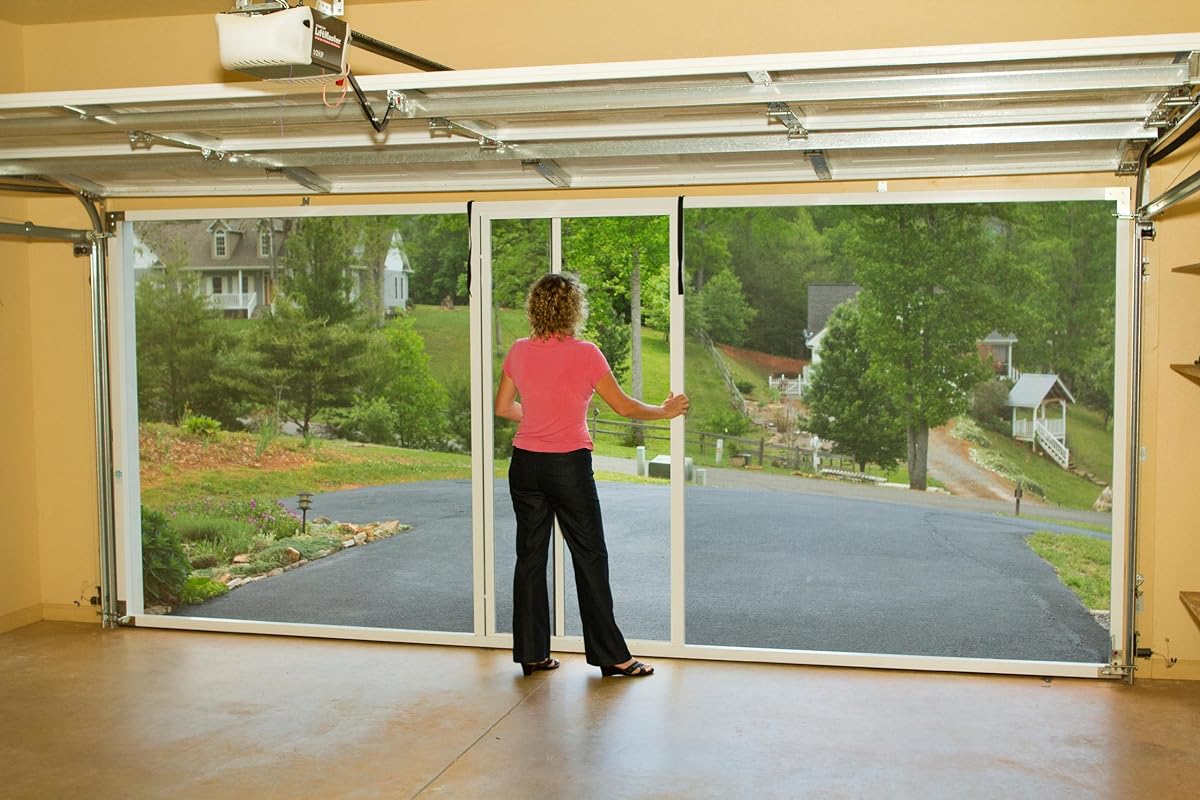
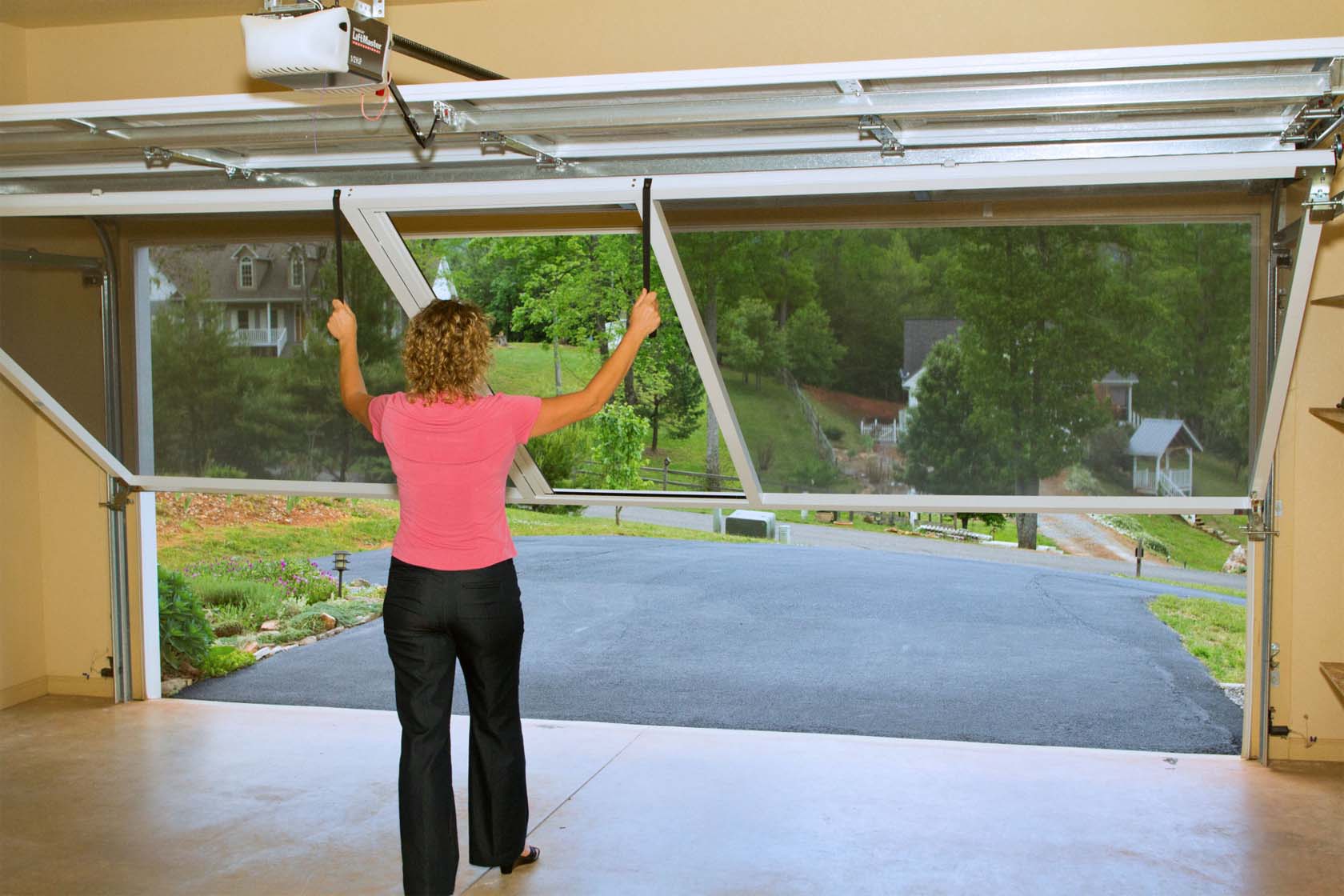
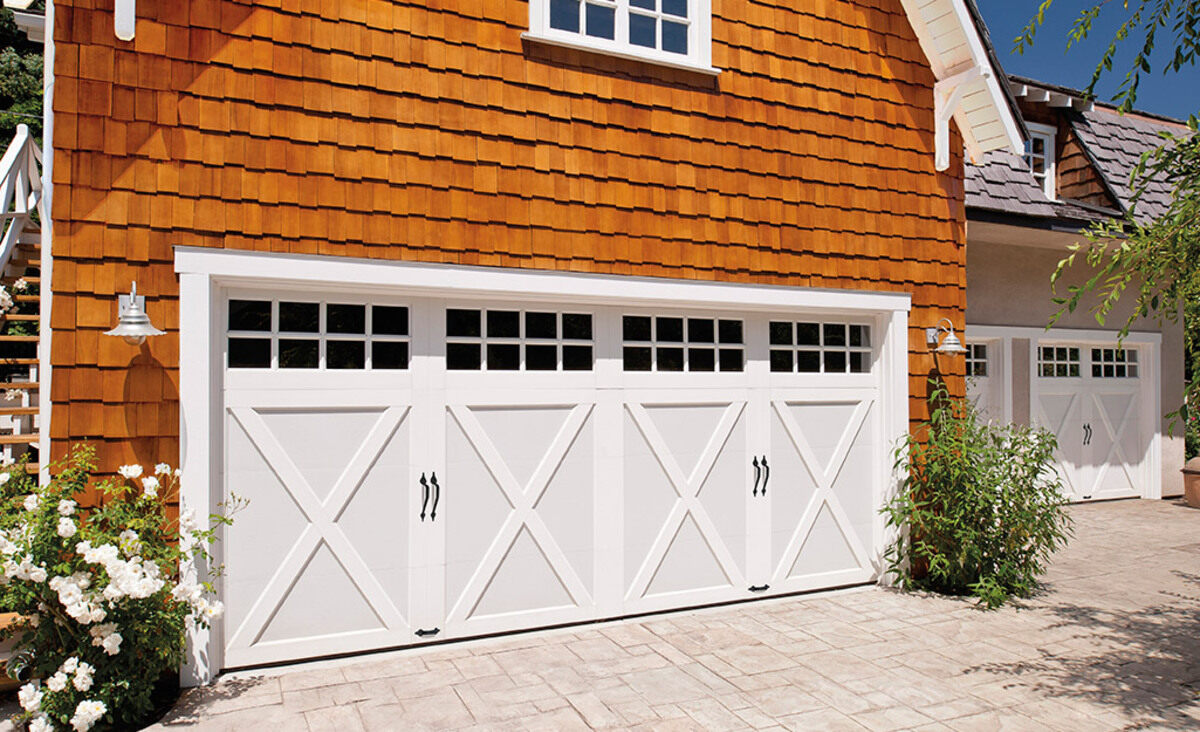
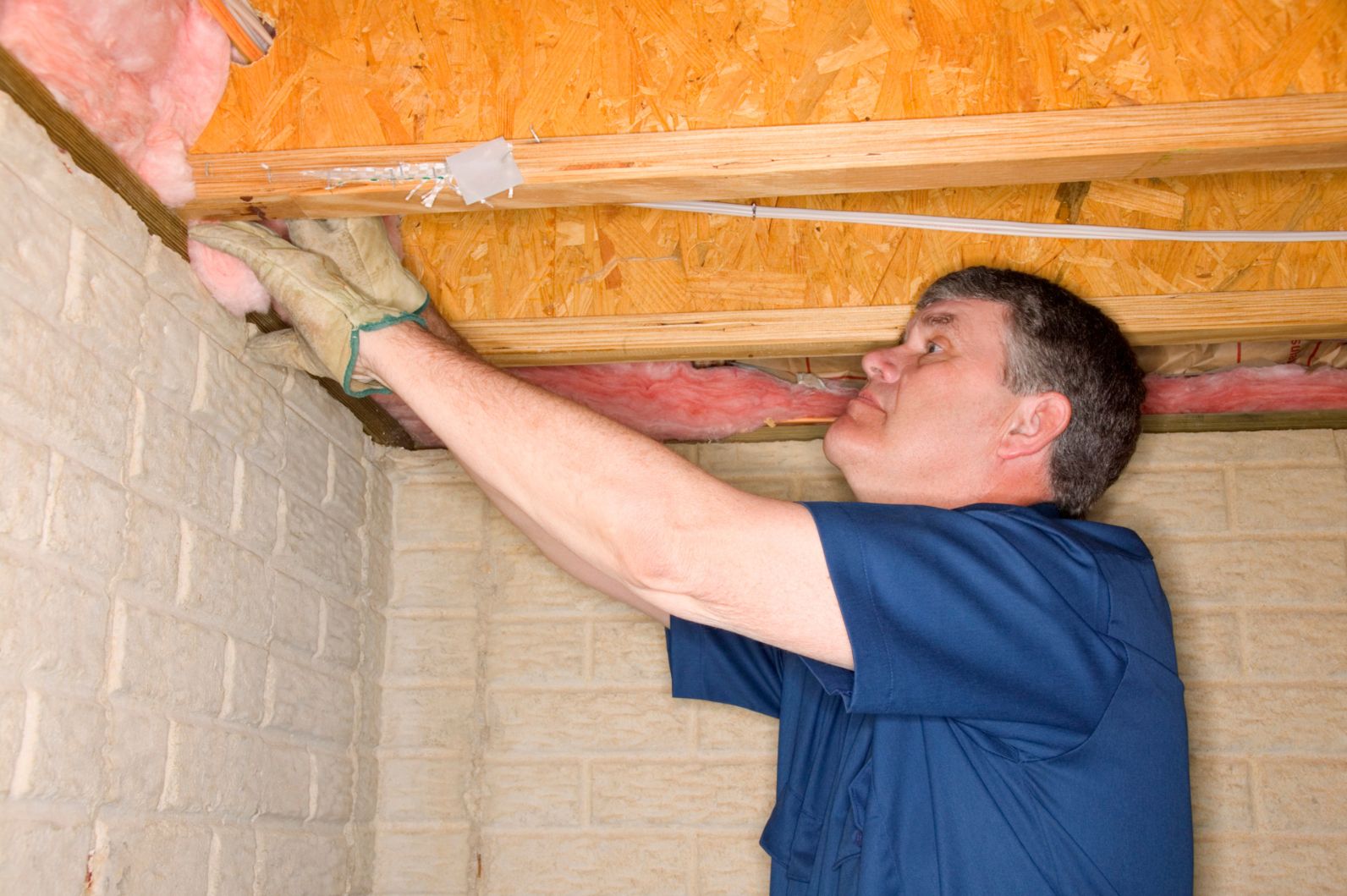
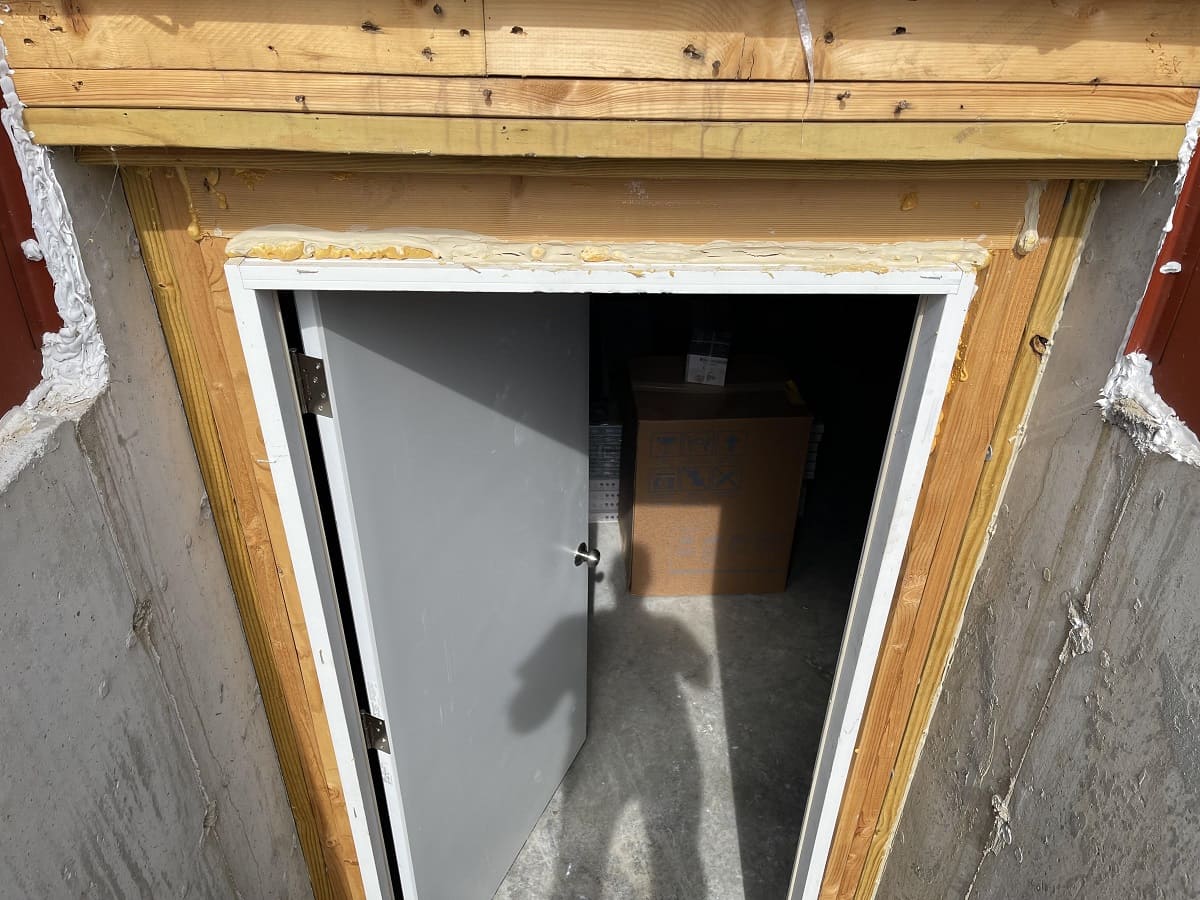

0 thoughts on “How To Tell If Garage Door Is Insulated”